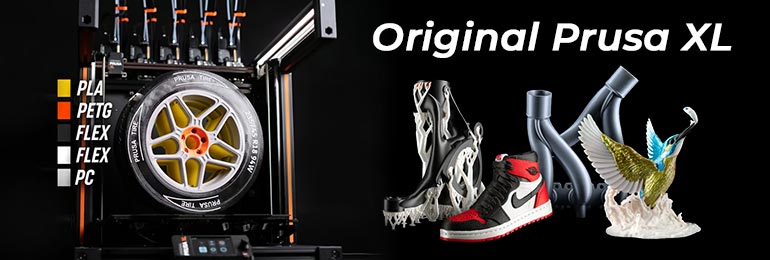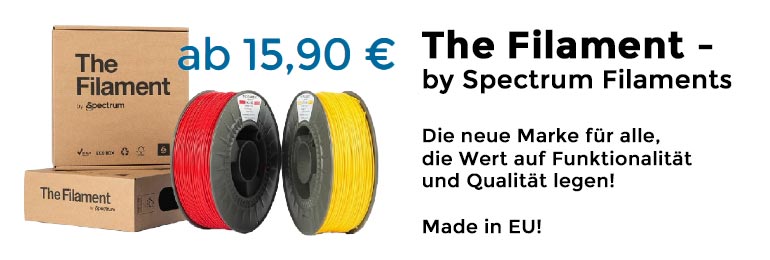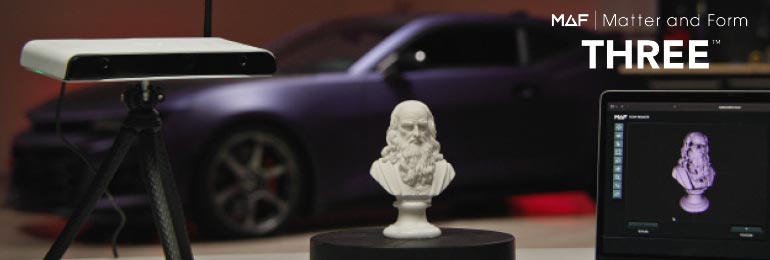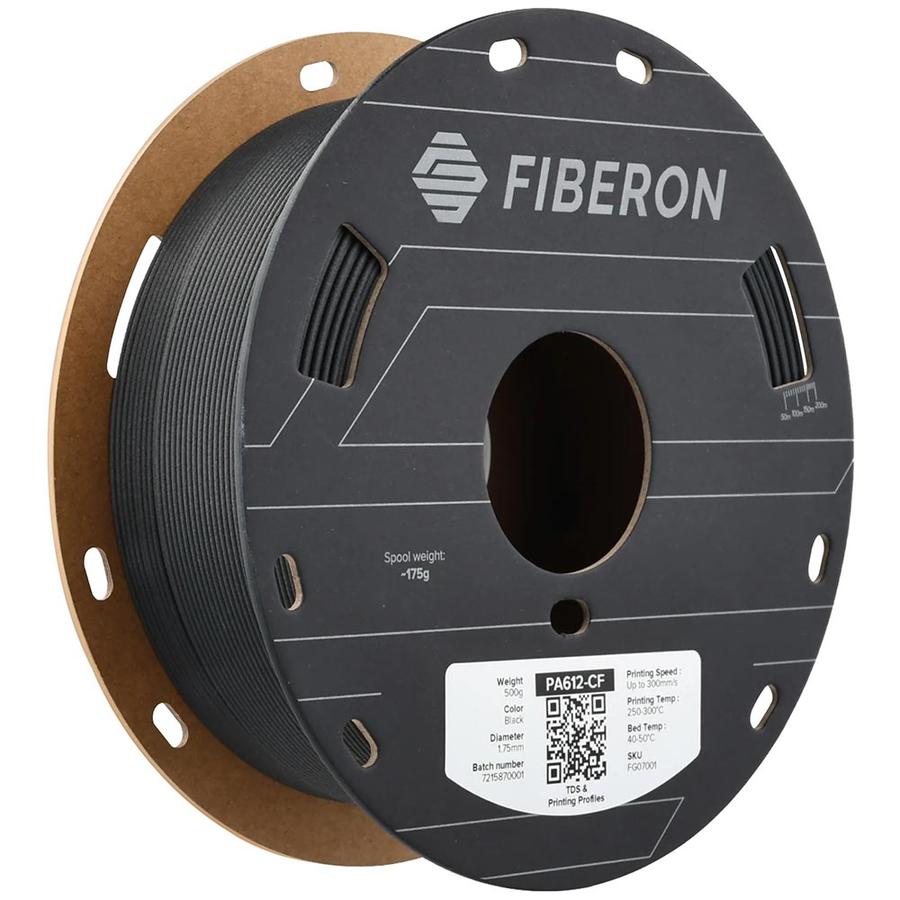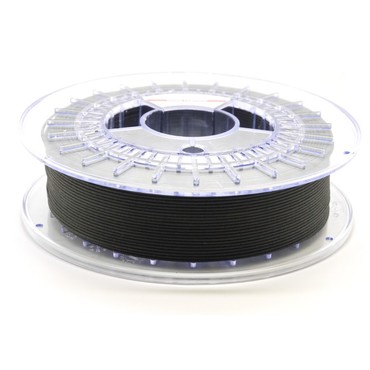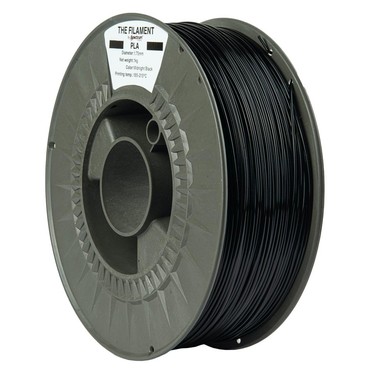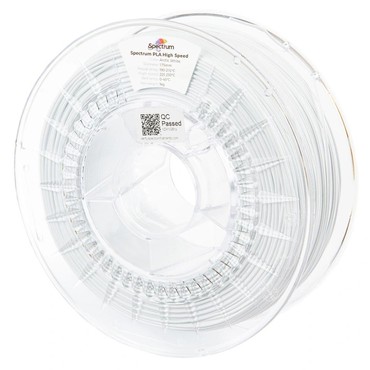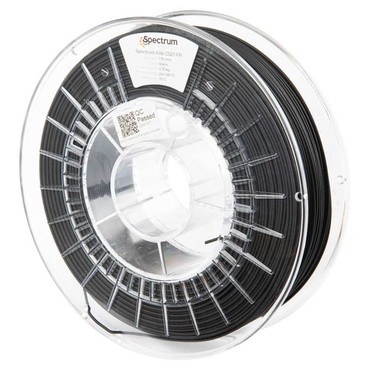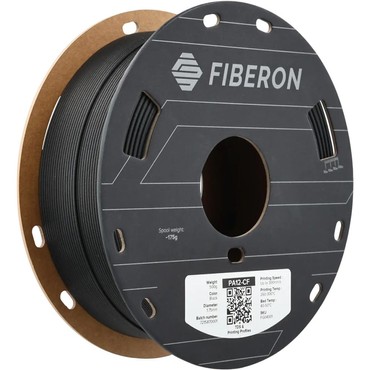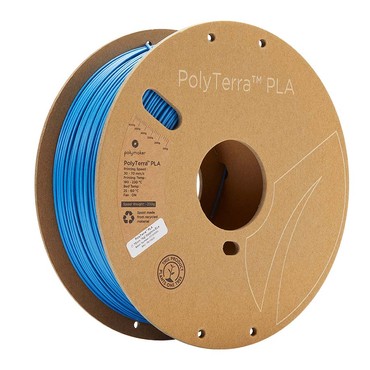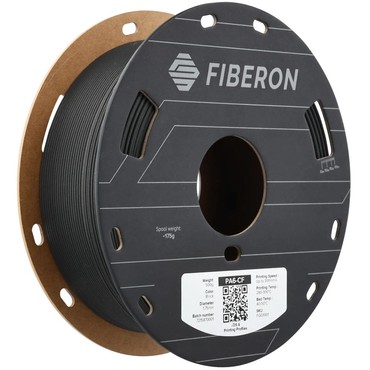Polymaker Fiberon™ PA612-CF15 1.75 mm / 500g / Black
Kohlefaserverstärktes langkettiges Copolyimidfilament
PA612-CF15 / in 1.75mm / 500g, 3000g / schwarz
Polymaker Fiberon™ PA612-CF15 (Früher PolyMide™ PA612-CF)
- geringere Feuchtigkeitsempfindlichkeit
- kostengünstig
- stabile Dimension geringe Verformung
Fiberon™ PA612-CF15 ist ein kohlefaserverstärktes langkettiges Copolyimidfilament. Dank seiner chemischen Struktur ist dieses Produkt im Vergleich zu PA6/66 und PA6-basierten Materialien weniger feuchtigkeitsempfindlich und weist bessere mechanische Eigenschaften als PA12-basierte Materialien auf. Darüber hinaus verbessern die Kohlefaserverstärkung und die Warpfree™-Technologie die Größenstabilität der mit diesem Material erstellten Drucke.
Fiberon™ PA612-CF15 hat dieselbe großartige Formel wie PolyMide PA612-CF, obwohl Fiberon™ PA612-CF15 in einem etwas dunkleren Schwarzton als sein Vorgänger gedruckt werden kann.
Laden Sie das TDS herunter, um mehr über die Leistung des Materials zu erfahren.
Druckanforderungen
- Ganzmetall-Hotend 250˚C+ empfohlen
- Gehärtete Düse
- Filamenttrockner
- Glühen nach dem Drucken
- Feuchtigkeitskonditionierung nach dem Glühen
- Material
Fiberon™ PA612-CF15 - Drucktemperatur
250 - 300 ˚C - Heizbett
40 - 50 ˚C - Bauraum
Zimmertemperatur - Druckbettbeschichtung
BuildTak, Magigoo - Filament Durchmesser
1,75 mm - Filament Nettogewicht
500 g / 3000 g - Verpackungsgewicht
900 g / 4000 g - Lagerung
trocken und kühl - Maße
0.5kg cardboard spool:
Spool Inner Hole Diameter: 55±1mm
Spool Diameter: 200±1mm
Spool Width: 65.6±2mm
Spool Weight: 190±7g0.75kg cardboard spool:
Spool Inner Hole Diameter: 55±1mm
Spool Diameter: 200±1mm
Spool Width: 50.6±2mm
Spool Weight: 125±7g1kg cardboard spool:
Spool Inner Hole Diameter: 55±1mm
Spool Diameter: 200±1mm
Spool Width: 65.6±2mm
Spool Weight: 140±7g2kg cardboard spool:
Spool Inner Hole Diameter: 55±1mm
Spool Diameter: 250±1mm
Spool Width: 117.2±2mm
Spool Weight: 370±18.5g3kg cardboard spool:
Spool Inner Hole Diameter: 55±1mm
Spool Diameter: 250±1mm
Spool Width: 117.2±2mm
Spool Weight: 425±21.3g5kg plastic spool: 32mm/300mm/160mm/819g
Spool Inner Hole Diameter: 32±1mm
Spool Diameter: 300±1mm
Spool Width: 160±1mm
Spool Weight: 819±30g
Spool Material: PP
What is annealing?
You can find out more about annealing HERE
What is moisture conditioning?
Moisture conditioning refers to allowing the print to absorb moisture. This is inevitble since nylons are hygroscopic, but you can expedite the process by keeping the print in a high humidity climate, or submerging them in water, for 48 hours. All of our test specimens were annealed at 100˚C for 16 hours, and then immerged in water at 60˚C for 48 hours. The average moisture content of specimens is 2.57%.
Should I anneal before or after moisture conditioning?
When you anneal in a convection oven, you will dry the part out. So if you moisture condition before annealing - you will need to moisture condition again after. So we would suggest to moisture condition after annealing.
Why do you use such a low build plate temperature with your nylons?
Our nylons come with our Warp-Free™ Technology. In order for this Warp-Free™ technology to work as it should - we want to make sure the build plate and the ambient air temperatures are both below 50˚C. We then anneal the print after to get it's full strength.
Learn more HERE
Will the spools work in an AMS?
Yes! We have redesigned the edges of our spools so all Polymaker products will now spin great in the AMS.
That said - you will need to be careful when using any abrasive materials in the AMS.
- Hersteller
- Polymaker B.V.
- Vondellaan 88, 3521GH Utrecht, Netherlands
- sales.eu@polymaker.com
- https://www.polymaker.com/
